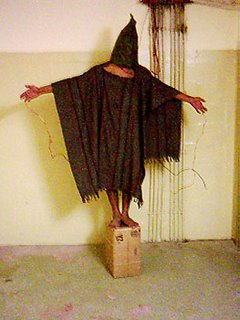
Virginia voters will be faced with an amendment to their state constitution this coming November 7th that will restrict legal rights and social benefits, now available to a wide range of people living together, to only heterosexual couples formally married. In essence, this is a ban on any and all legal recognition of unmarried relationships – gay and straight, including a ban on civil unions and domestic partnerships
Of course, the amendment is targeted to outlaw
same sex marriage in Virginia. It is already against the law by statute. The purpose of the amendment is the concern by
Christianists and their allies that judicial action may overturn those statutes. They believe writing discriminatory language into the constitution will maintain the status quo.
That, of course, is bad enough but the expansive language of the amendment makes it worse because it impacts all unmarried relationships. Attorney General Robert McDonnell has succeeded to offering
reassurances in official state literature about the amendment that states it doesn’t mean what it says. However, the Attorney General’s opinions have no legal bearing on interpretation by the courts. There is absolutely no reason to assume judges will not
interpret the amendment to mean anything other than what it says.
This amendment needs to be defeated.
The
Commonwealth Coalition was created this spring to campaign against and defeat this amendment. They have listed ten reasons why citizens of the Commonwealth of Virginia should vote NO. They are:
1. You believe that the language of the proposed amendment goes too far in denying legal recognition to all unmarried relationships and not just same-sex relationships.
2. You are concerned that the amendment will be read by the courts to bar enforcement of domestic violence laws against unmarried partners.
3. You are concerned that the amendment will be used by opposing factions in families seeking to deny unmarried partners of loved ones the right to hospital visitation, to decide about organ donation or burial or to determine guardianship of children or property rights.
4. You are a business person or business owner who is concerned that your business will be sued for offering domestic partner benefits or health insurance to other than immediate family members or that you will not be able to attract and retain the best employees because you will not be able to match benefits available elsewhere.
5. You believe that civil marriage, as a governmental benefit, should be available to all without discrimination.
6. You are a religious leader or member of a faith community concerned that the amendment will prohibit you from celebrating marriages or unions consistent with your faith.
7. You are in an unmarried relationship, and you are concerned that the amendment may deny you access to the courts to enforce legal agreements regarding child custody, property and other arrangements essential to provide stability for your relationship and your family.
8. You believe that it is unnecessary to amend the constitution because Virginia statutes have prohibited same-sex marriages for 30 years and civil unions and other legal agreements between same-sex couples for the last three years without any legal challenge.
9. You believe that marriage should be limited to one man and one woman, and civil unions, domestic partnerships and other legal agreements between unmarried gay or straight couples should be legal.
10, You support full marriage equality.
If you agree with any one of the above reasons you should go to the Commonwealth Coalition website and add your name to those opposing the amendment. You can even volunteer and/or make a donation.
 Is a Christianist crack-up in the works? We can only hope (or, if so inclined, pray).
Is a Christianist crack-up in the works? We can only hope (or, if so inclined, pray).


















